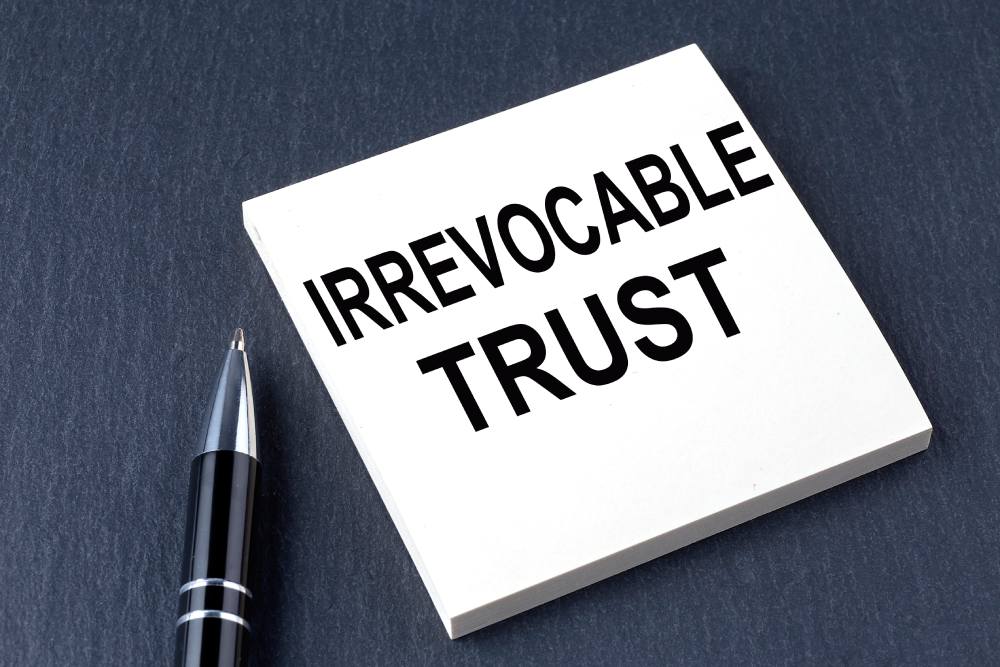When structuring a business, asset protection plays a big part in deciding between a business trust vs.LLC. Both options offer distinct benefits, but they function differently in terms of liability protection, taxation, and management.
Choosing the right structure depends on financial goals, ownership preferences, and risk exposure. Knowing how each entity protects assets can help business owners and investors safeguard their wealth effectively.
Business Trust Vs. LLC: Which Is Which?
The Basics of a Business Trust
A Massachusetts trust (also known as a business trust or statutory trust) is a legal entity where assets are managed by trustees on behalf of beneficiaries. However, unlike corporations or LLCs, a business trust does not have shareholders or members.
Instead, trustees handle decision-making while beneficiaries receive distributions based on the trust’s terms.
One of the main advantages of a business trust is its ability to hold and control assets separately from an individual’s personal wealth. This separation can shield business assets from personal liabilities, making it a useful tool for long-term asset protection.
Some business owners prefer this structure for its flexibility in succession planning and wealth transfer.
Business trusts also operate under specific regulations that differ by state. Nevada, for example, offers a Nevada asset protection trust, which strengthens financial security by placing assets beyond the reach of creditors in certain circumstances.
The effectiveness of a business trust depends on state laws and how the trust is structured.
LLC – The Basics
An LLC – or limited liability company – is a business structure that joins aspects of sole proprietorships and corporations. Owners, known as members, benefit from liability protection, meaning their personal assets are generally not at risk for business debts or lawsuits.
LLCs offer operational flexibility and can be owned by individuals, partnerships, or corporations.
Tax treatment is one of the biggest appeals of an LLC. By default, single-member LLCs are taxed as sole proprietorships, while multi-member LLCs function as partnerships. Owners can also choose to have their LLC taxed as an S-corporation or C-corporation, depending on their financial strategy.
LLCs are widely used for small businesses, real estate investments, and professional services due to their straightforward management structure. However, forming and maintaining an LLC requires compliance with state regulations, including annual filings and record-keeping.
Asset Protection: Business Trust Vs. LLC
Both a business trust and an LLC offer liability protection, but the level of security depends on how the entity is structured and managed.
Liability Protection
LLCs shield owners from business-related debts and lawsuits. Creditors can pursue the LLC’s assets but generally cannot go after personal assets unless fraudulent activity is involved.
Business trusts can also protect assets, but their effectiveness differs based on how the trust is drafted and state laws governing them.
Separation of Assets
Business trusts create a distinct separation between personal and business assets. Trustees hold assets for the benefit of the trust, which may prevent creditors from seizing them in legal disputes.
LLCs offer protection for personal assets, but if an LLC’s operations are not clearly separate from an owner’s personal affairs, courts may allow creditors to “pierce the corporate veil” and access personal wealth.
State-Specific Benefits
States like Nevada offer legal structures that strengthen asset protection. A Nevada asset protection trust can shield wealth from potential legal claims, offering an additional layer of financial security for those using a trust structure.
Similarly, Nevada LLCs are known for strong liability protection laws, preventing creditors from forcibly taking ownership of a business.
Tax Considerations: Business Trust Vs. LLC Taxes
Tax treatment is a major distinction when evaluating a business trust vs. LLC taxes. Each structure has unique advantages, depending on the financial goals of the owner.
Business Trust Taxes
A business trust can be taxed in multiple ways. Some are classified as pass-through entities, meaning income flows directly to beneficiaries without corporate taxation.
Others may be taxed similarly to corporations, depending on how the trust is structured and the state’s tax laws.
LLC Taxes
LLCs offer flexibility in tax classification. By default, income passes through to members without being subject to corporate tax. However, an LLC can elect corporate taxation if it benefits the owner’s financial strategy.
Some business owners opt for S-corporation status to reduce self-employment taxes while maintaining pass-through taxation.
The right tax structure depends on income level, business operations, and long-term financial planning. Consulting a tax professional can help determine which entity lines up best with an individual’s goals.
Management and Control Differences
The way each entity is managed also differs greatly.
Business Trust Management
Trustees handle decision-making, and beneficiaries typically have limited control over day-to-day operations. This setup can be beneficial for estate planning, allowing assets to pass smoothly to heirs without the need for probate.
However, it also means that beneficiaries must rely on trustees to manage assets in the best manner possible.
LLC Management
LLCs offer management flexibility. Owners can appoint managers to handle operations or manage the company themselves.
This makes LLCs ideal for entrepreneurs who want direct control over business decisions while still benefiting from liability protection.
Business owners who prefer a hands-on approach often choose an LLC, while those looking for structured asset management may lean toward a business trust.
Which Structure Offers Better Asset Protection?
The choice between a business trust or an LLC depends on the level of protection needed and the intended use of the entity.
- Best for Business Operations: LLCs work well for active businesses that generate revenue, need flexibility in tax treatment, and require liability protection for owners.
- Best for Long-Term Asset Protection: Business trusts can be advantageous for safeguarding wealth and passing assets to beneficiaries. Using a Nevada asset protection trust can further shield funds from creditors and legal claims, offering additional security.
- Best for Tax Strategy: Those looking for tax flexibility often choose LLCs, because they offer multiple tax classification options. Business trusts, on the other hand, have specific tax rules that may limit their appeal depending on an individual’s financial situation.
Trusted Asset Protection and Business Structuring with Nevada Trust Company®
At Nevada Trust Company®, we make helping clients safeguard their assets through personalized financial solutions our main priority.
Our team of experienced professionals knows the complexities of business structuring and asset protection, offering customized guidance for those considering a business trust vs. LLC.
With decades of expertise, we work closely with individuals and businesses to establish secure financial structures that are in keeping with their long-term goals.
We also provide custody and escrow services, providing a secure way to manage business assets with oversight from seasoned professionals. Our commitment to exceptional service ensures that every client receives strategic insights and customized financial solutions. If you have any questions, feel free to reach out to us today.



